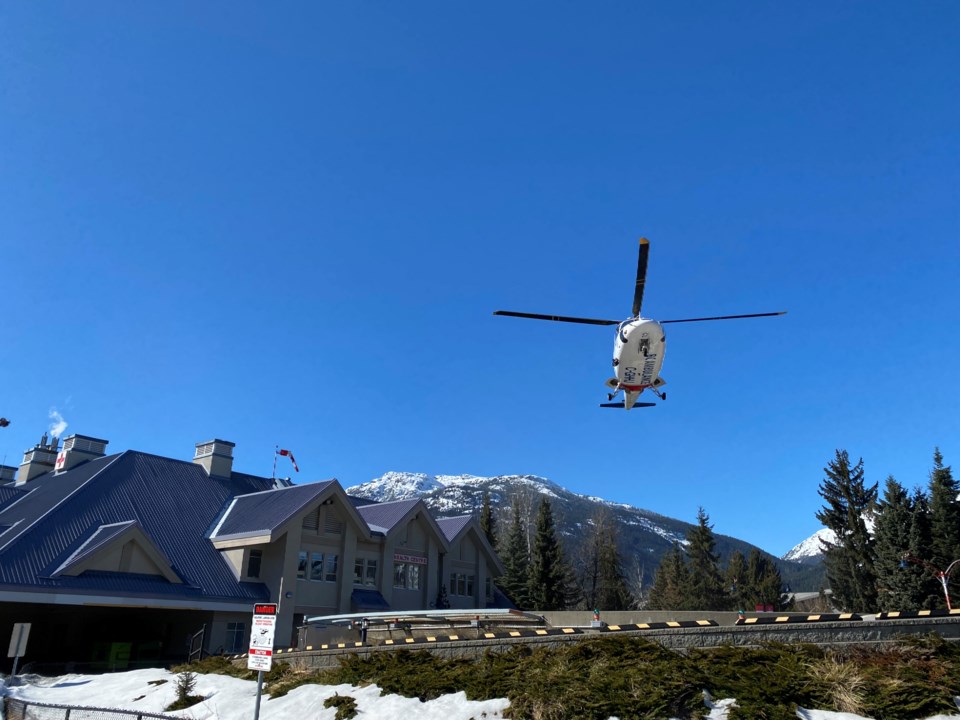Lesley Broadhurst was skiing at Whistler Blackcomb on March 7 when a reckless skier, she estimates to be doing up to 65 km/h, collided with her from behind.
The man only stopped momentarily, and left before identifying himself.
Broadhurst’s injuries were significant: a broken tibial plateau requiring 2.5 hours of surgery at Lions Gate Hospital, and a fractured right clavicle. Her recovery includes 10 to 12 weeks in a rehab centre, and a seven-month timeframe in total.
Following her incident, she posted to the Whistler Blackcomb Skiers & Snowboarders Facebook group, and was blown away by the response—more than 175 comments and 29 shares.
“Countless stories of skiers being hit, children being hit, skiers who have skied the slopes for 30 to 40 years not feeling safe anymore and an overall lack of response/priority by Vail [Resorts] to deal with these offences—it completely backs up [recent letters and columns in Pique],” Broadhurst said.
She added she has received Whistler Blackcomb’s final report on the collision, which was “good, very detailed, clearly stating this was a high-speed collision from behind,” and has also filed a police report—but she hopes to see changes at Whistler Blackcomb.
“I do believe increased pressure needs to happen,” she said.
According to Whistler Blackcomb, the mountains did not see a significant increase in incidents this season, though patrol was busier due to a variety of factors—challenging terrain caused by low snowpack among them.
“Safety is our top priority at Whistler Blackcomb, and speeding and unsafe skiing and riding are not tolerated,” said WB’s COO Belinda Trembath, in a statement.
“We are proud of our dedicated team members who work hard each and every day to educate and enforce the highest standards of safety, as well as our investments in safety personnel, educational programming and infrastructure. Everything we do is anchored to a continued emphasis on safety and educating our guests about the Alpine Responsibility Code and safe skiing and riding practices.”
Patrol is equipped to deal with anyone violating the Code, including providing education, but guests skiing or riding recklessly are at risk of having their pass suspended or revoked. Severe violations of safety policies can get you banned from all Vail Resorts properties, everywhere, forever.
“We remain committed to educating our guests about the Alpine Responsibility Code and safe skiing and riding practices, whether it’s through our safety videos on our social channels; increasing the number of rest zone or safe-stop banners; directing beginners to our dedicated learning areas; or ensuring our dedicated team of Patrollers and yellow-jacketed mountain safety team members are equipped with the resources they need to provide a safe and enjoyable guest experience. We are constantly focused on safety,” a WB spokesperson said.
“We also need our guests’ help—skiers and riders are expected to respect designated slow zones and stop areas, and adjust their speeds accordingly.”
As stated in the Alpine Responsibility Code, if anyone is involved in a collision or incident, they should share their contact information with each other and a ski-area employee, the spokesperson added.
They should, but will they? Some Whistlerites, like Ken Snowball, aren’t waiting around to find out.
“In the last two years, my wife has been in three collisions, two rather dramatic (one on a back board out to the clinic) to the point she fears skiing here,” Snowball said. “She is not alone in this fear.”
Snowball said he skied here in Whistler’s first season, was a volunteer First-Aid Ski Patroller for three years, and has owned in the community since 2003—full-time since 2014, “yet, like so many others, my exodus is at hand.”
The reason? Safety on the mountain.



